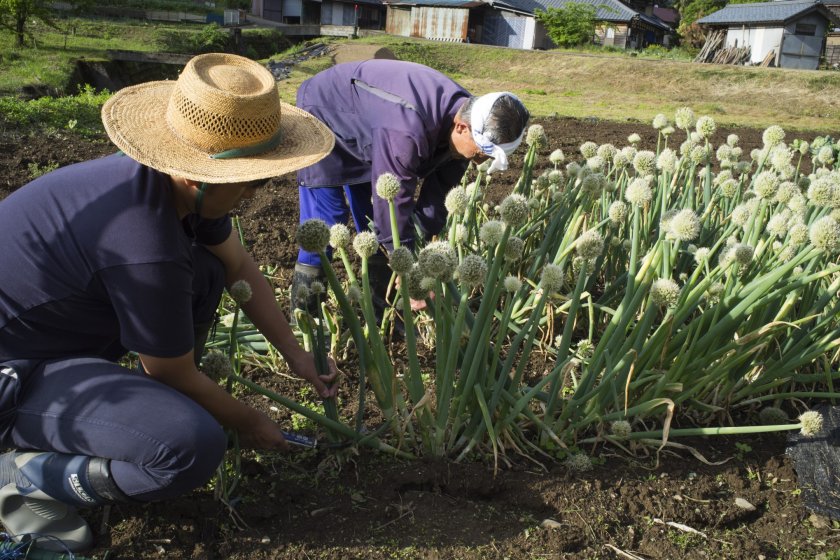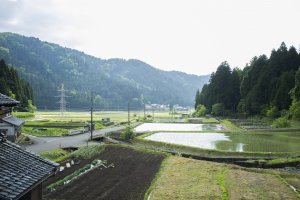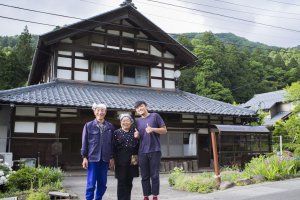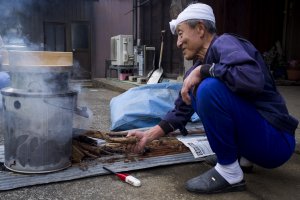For the Echizen visitor looking to experience Echizen city's traditional way of life, they can look to booking programs on the Lifestyles of Health and Sustainability (LOHAS) Echizen site, as part of Echizen city's green tourism initiative. On this website, visitors can choose a variety of programs such as mochi and soba-making, nature and woodland trail walks, or even learn to ride a horse.
I was given the opportunity to stay at a countryside farmhouse in Imadate town of Echizen city, belonging to an elderly couple, Mr and Mrs Toshiharu Kato. Upon arriving, I was greeted by those two friendly faces who seemed really eager to have a visitor come explore this remote part of Echizen city. Their house was a huge two-storeyed tatami-matted place separated by shōji (sliding doors), filled with many antiques collected by the couple. The guest space is on the second floor, a spacious room that has basic amenities and a fantastic view of the mountainous countryside view that Imadate possesses.
The experience started with aiding Mr and Mrs Kato in harvesting their homegrown fresh produce. Mr and Mrs Kato's fields of green grows a variety of vegetables such as isunsodamame (a bigger version of edamame), negi (spring onions) and zucchini, all organic and can even be eaten fresh, albeit tasting a little raw for comfort. Spending some time hacking off fresh produce, Mrs Kato collected some of it, intending to use them for a comforting home-cooked meal later in the evening. Mr Kato then introduced the traditional way of cooking rice when he was younger - cooking it over a charcoal/wood fire. He explains that rice cooked this way is usually more fragrant, something that cannot be achieved by using gas or electrical stoves.
During dinner, Mr and Mrs Kato spoke fondly of welcoming visitors to their little countryside house any time, as they enjoy meeting new people and want to introduce tourists to a simpler way of life, a slower-paced but happy life far removed from the fast-paced, technogically-dependent world that we live in today. It was heartwarming to be able to enjoy a home-cooked meal with these two, even with the slight language barrier, and the fact that Mr Kato enjoys making a few witty jokes. Mr Kato is also a passionate soba-making enthusiast - he owns his own little soba-making space just a short walk from his house, where rolling pins, tables and Mr Kato's 20-year old konehachi (soba-kneading bowl) are stored.
The next day, I accompanied Mr Kato to hunt for bamboo shoots before breakfast, inside a fenced-up area atop a hill to prevent wild boars from entering. Trying to pick up key Japanese vocabulary due to my poor command of the language, it took me awhile to understand what I had to do - only hack off the ones which are small, around 10-15 centimeters, as those are the only ones soft enough of eating. As we finished that task, we sat again for another lovely breakfast lovingly prepared by Mrs Kato before Mr Kato drove me back to the main LOHAS facility. Saying our thanks and goodbyes, I departed back to Takefu Station, at one point catching Mr Kato looking into the distance, perhaps eager to share his countryside life to the next visitor soon.
































